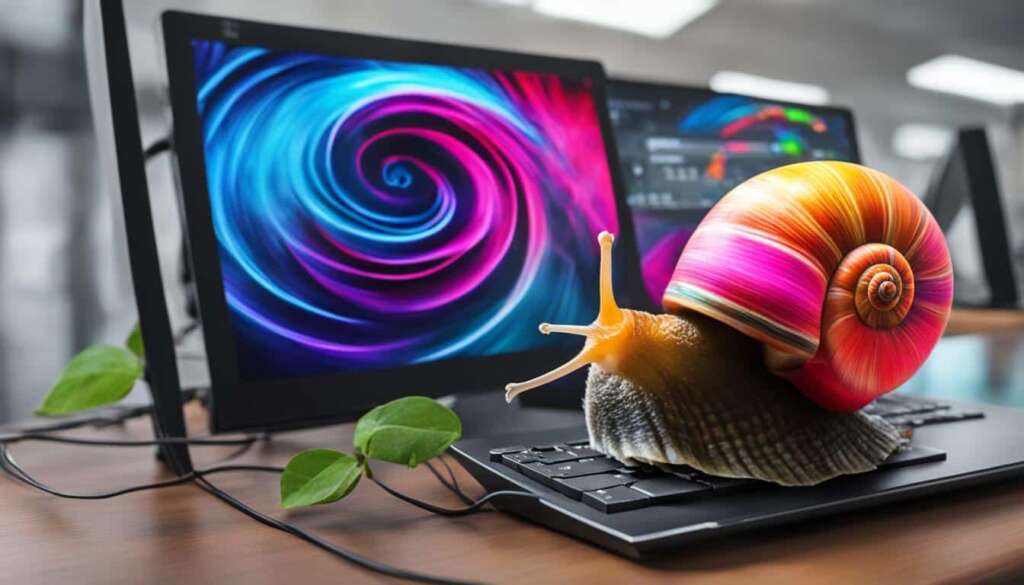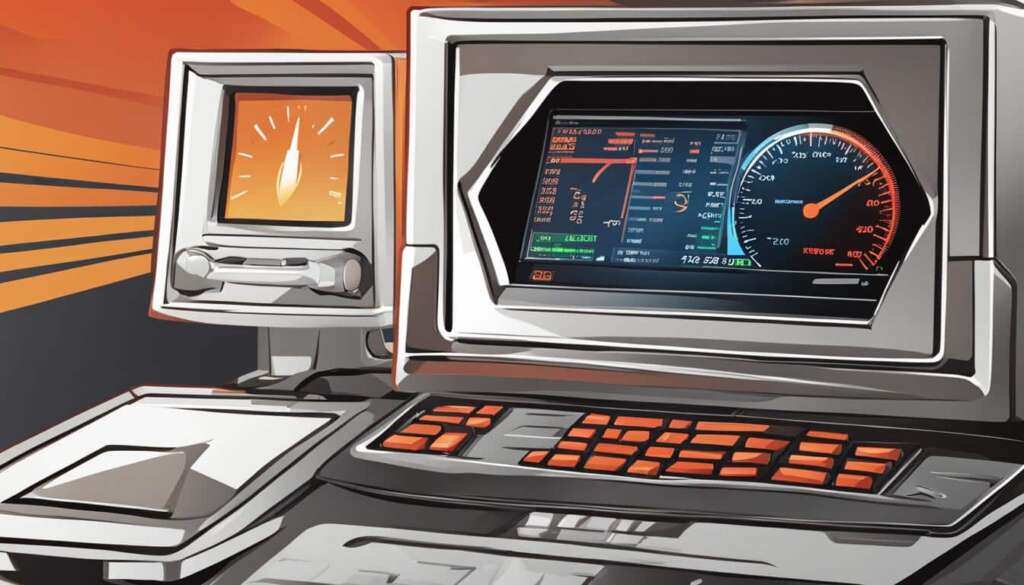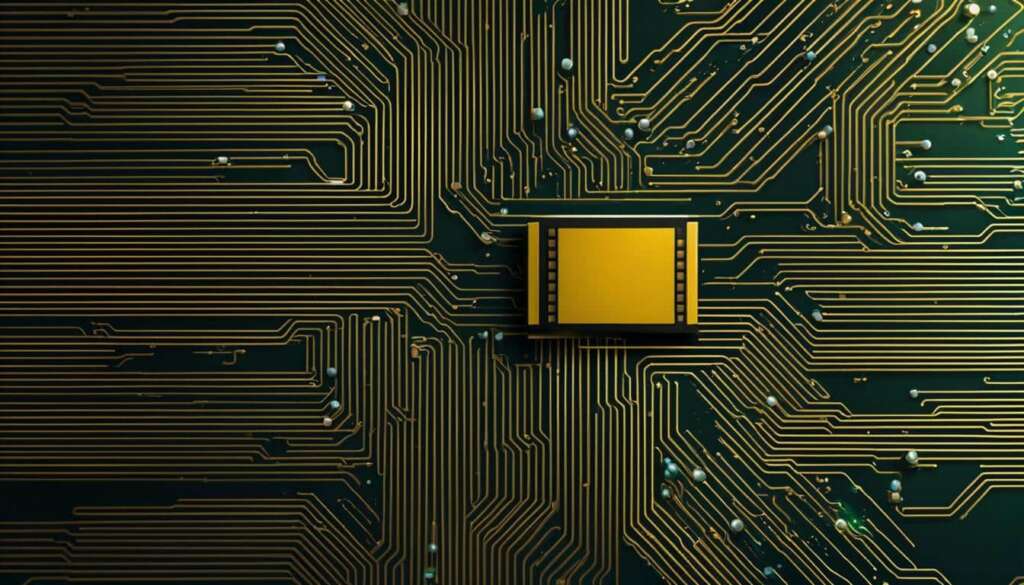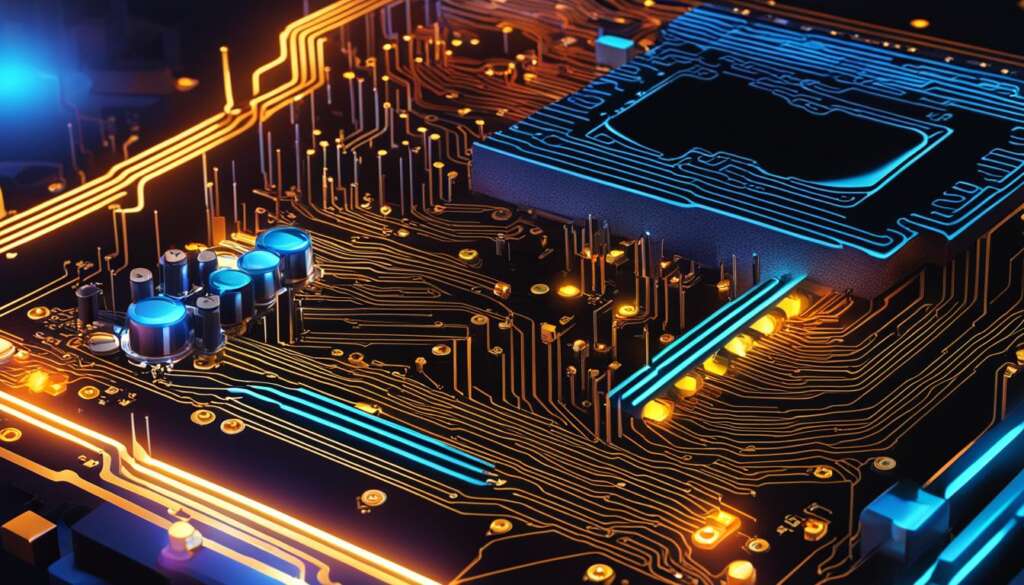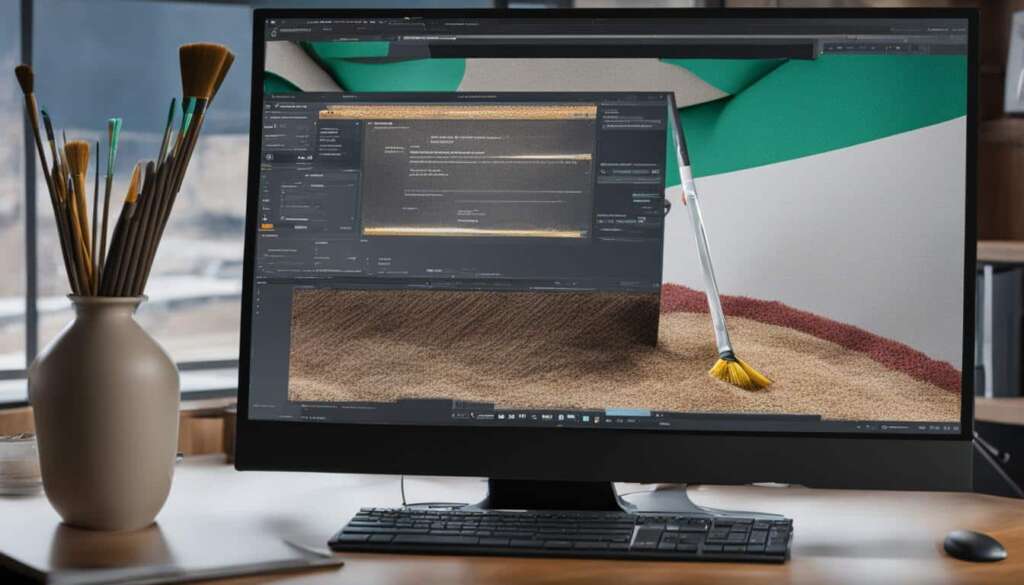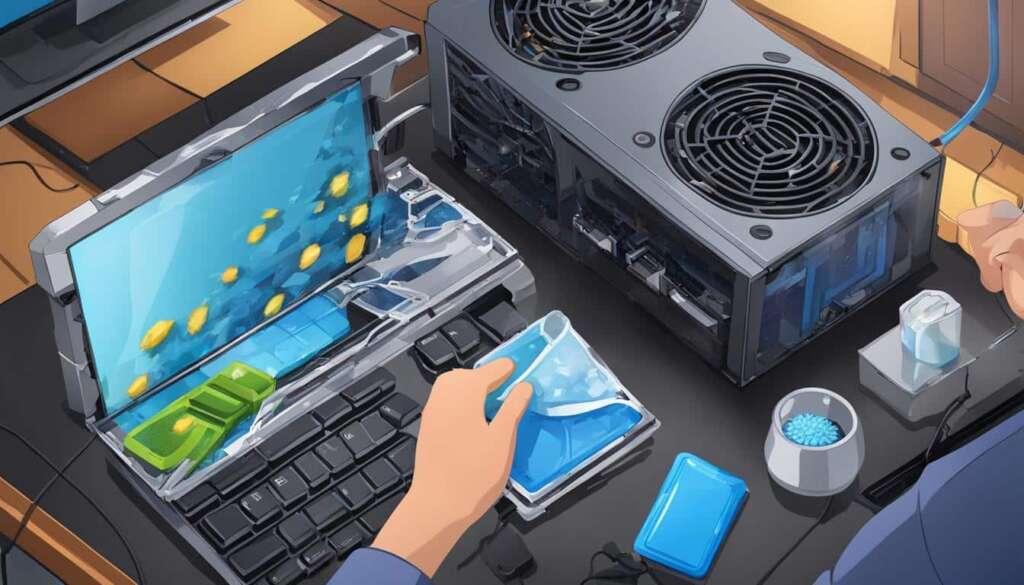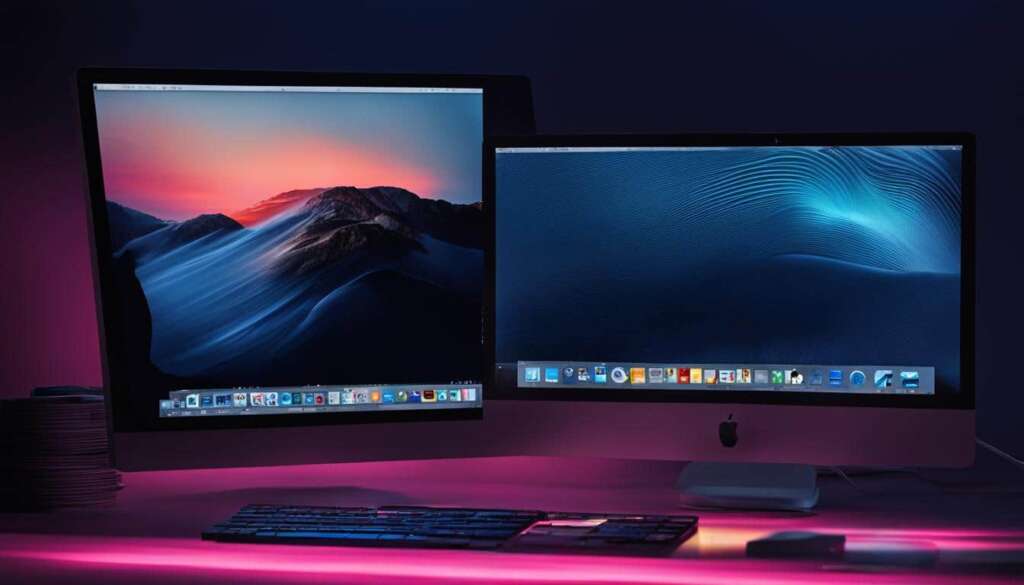Table of Contents
PC hardware and software continue to advance, and it’s important to optimize computer performance for peak efficiency. In this guide, we will explore how to speed up your computer without compromising its appearance and functionality. Whether you’re using Windows 10 or the latest Windows 11, these tips and tricks can help improve your computer’s speed and overall performance.
Key Takeaways:
- Optimizing your computer’s performance is essential for peak efficiency.
- Avoid registry cleaners and be cautious of ads promising to speed up your PC.
- Uninstall unnecessary software, known as crapware or bloatware, to improve system performance.
- Limit startup processes to reduce boot time and enhance overall system performance.
- Clean up your disk by removing temporary files and optimizing storage.
Uninstall Crapware
New computers often come with unnecessary pre-installed software, known as crapware or bloatware. These programs can slow down your computer and interrupt your workflow. To improve system performance, it’s important to uninstall crapware and remove any unnecessary software.
One way to uninstall crapware is by right-clicking on the app icon in the Start menu. This will give you the option to uninstall the program. Another method is to use the Programs and Features option in the Control Panel. Simply navigate to the Control Panel, select Programs and Features, and uninstall any unwanted software.
It’s also essential to remove any programs that you may have installed yourself but no longer need. These programs can take up valuable resources and contribute to slower system performance. By uninstalling both crapware and unnecessary software, you can free up resources and improve the overall speed of your computer.
Table: Comparison of Computer Performance Before and After Uninstalling Crapware
| Performance Metric | Before Uninstalling Crapware | After Uninstalling Crapware |
|---|---|---|
| Boot Time | Slow | Significantly Faster |
| Application Speed | Sluggish | Improved Responsiveness |
| System Resources | Highly Utilized | More Available |
By uninstalling crapware and removing unnecessary software, you can improve system performance, optimize resource allocation, and enhance the overall speed of your computer.
Limit Startup Processes
When you start up your computer, you may notice that it takes longer than expected to fully boot up and become ready for use. This can be due to the number of unnecessary programs that are set to run at startup. These programs not only delay the boot time but also consume valuable system resources, ultimately affecting the overall performance of your computer. By limiting startup processes, you can significantly speed up the boot time and improve system performance.
To manage startup processes in Windows 10 and Windows 11, you can use the built-in Task Manager. Simply press Ctrl + Shift + Esc to open Task Manager, and then switch to the Startup tab. Here, you will see a list of programs that are set to run at startup. Take a look at the list and identify any unnecessary programs that you don’t need running every time you start your computer.
To disable a startup program, right-click on it and select the “Disable” option. This will prevent the program from automatically running at startup, freeing up system resources and reducing boot time. It’s important to note that you should only disable programs that you are familiar with and confident are not necessary for your computer’s normal operation.
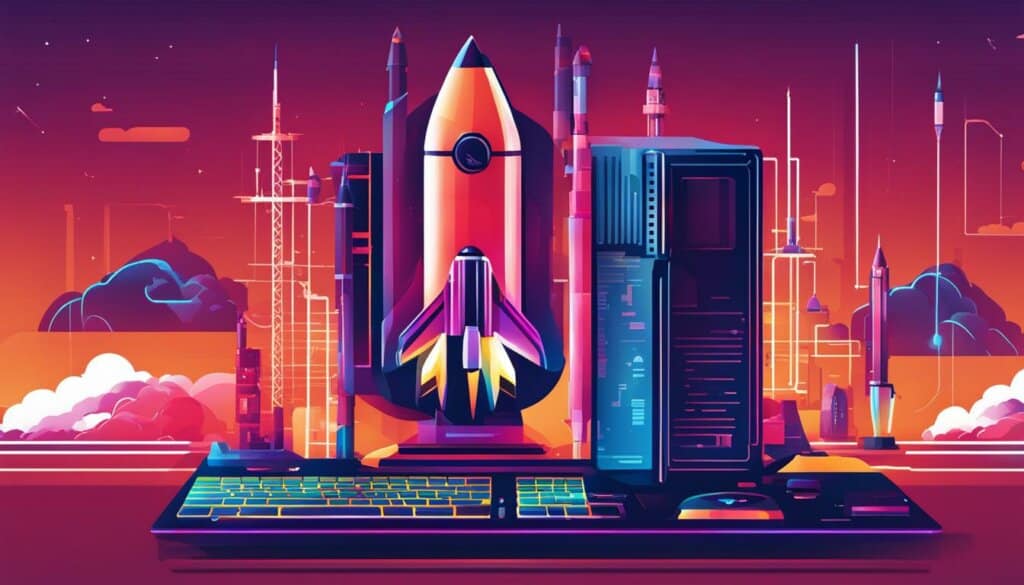
Benefits of Limiting Startup Processes
- Faster boot time: By disabling unnecessary startup programs, you can reduce the time it takes for your computer to start up and become usable.
- Improved system performance: Limiting startup processes frees up system resources, allowing your computer to allocate them more efficiently and perform better during use.
- Reduced system clutter: Disabling unnecessary startup programs helps declutter your system, creating a cleaner and more organized computing environment.
- Enhanced user experience: With faster boot times and improved performance, you can enjoy a smoother and more responsive computing experience.
By managing startup processes and only allowing essential programs to run at startup, you can optimize your computer’s performance and ensure a faster, more efficient boot time. Take the time to review your startup programs and disable any that are unnecessary, and experience the benefits of a streamlined and responsive system.
| Program | Description | Startup Impact |
|---|---|---|
| Microsoft OneDrive | Cloud storage and file synchronization service | Medium |
| Adobe Creative Cloud | Software suite for creative professionals | High |
| Spotify | Music streaming service | Medium |
| Steam | Digital distribution platform for games | High |
Table: Examples of Startup Programs and Their Impact on Boot Time
Clean Up Your Disk
Over time, your computer accumulates temporary files, offline web pages, and installer files that can take up valuable disk space. It’s important to regularly clean up your disk to optimize storage and improve system performance. Here are some steps you can take:
1. Use the Disk Cleanup utility
The Disk Cleanup utility in Windows can help you remove unnecessary files and free up disk space. To access it, simply search for “Disk Cleanup” in the Start menu and open the utility. You’ll then be able to select which files you want to remove, such as temporary files, system error memory dump files, and more. Click on “OK” to start the cleanup process.
2. Delete offline web pages and browser cache
If you frequently browse the internet, your browser may store offline web pages and cache files, which can take up a significant amount of disk space. Clearing these files can help optimize your storage. In most web browsers, you can access the option to clear browsing data by going to the settings or preferences menu. From there, you can choose to delete offline web pages and clear the browser cache.
3. Remove unused applications and files
Take the time to review your installed applications and files and determine if there are any that you no longer need. Uninstalling unused applications and deleting unnecessary files can free up a significant amount of disk space. To uninstall applications, go to the Control Panel and select “Programs and Features,” then choose the application you want to remove and click on “Uninstall.”
4. Schedule regular disk defragmentation (for HDDs)
If you have a traditional hard disk drive (HDD), scheduling regular disk defragmentation can further optimize storage and improve system performance. Disk defragmentation rearranges fragmented data on the disk, making it easier and faster for your computer to access. To schedule disk defragmentation, open the “Optimize Drives” tool in Windows and select the drive you want to defragment.
By following these steps to clean up your disk, remove temporary files, and optimize storage, you can ensure that your computer operates at its best performance and efficiency.
| Benefits of Cleaning Up Your Disk |
|---|
| 1. Free up disk space |
| 2. Improve system performance |
| 3. Optimize storage and organization |
| 4. Reduce the risk of data corruption or loss |
Conclusion
By following these tips and tricks, you can enhance your computer performance and optimize your PC speed. Uninstalling unnecessary software, limiting startup processes, and cleaning up your disk can free up valuable resources, resulting in accelerated computer performance.
Additionally, consider adding more RAM or upgrading to an SSD for even better performance. Increasing your computer’s memory capacity can provide a significant boost in speed and responsiveness. Upgrading to an SSD can also greatly reduce loading times and improve overall system performance.
Remember to regularly update your operating system and drivers to ensure compatibility and take advantage of the latest performance enhancements. By staying vigilant against viruses and malware, you can protect your computer from potential threats that can negatively impact its performance.
Take the time to optimize your computer using the techniques discussed in this master guide, and experience the benefits of a faster, more efficient system. Enjoy a smoother computing experience with optimized PC speed and accelerated computer performance.
FAQ
How can I speed up my computer?
You can speed up your computer by uninstalling unnecessary software, limiting startup processes, and cleaning up your disk to free up valuable resources.
How do I uninstall crapware?
To uninstall crapware, right-click on the app icon in the Start menu or use the Programs and Features option in the Control Panel.
How do I limit startup processes?
In Windows 10 and Windows 11, you can manage startup processes using the Task Manager. Press Ctrl + Shift + Esc, switch to the Startup tab, and disable any unnecessary programs.
How do I clean up my disk?
Use the Disk Cleanup utility in Windows to remove temporary files, offline web pages, and installer files. You can access Disk Cleanup by searching for it in the Start menu.
What else can I do to speed up my computer?
Consider adding more RAM or upgrading to an SSD for even better performance. Regularly updating your operating system and drivers, as well as staying vigilant against viruses and malware, are also important for optimal computer performance.

